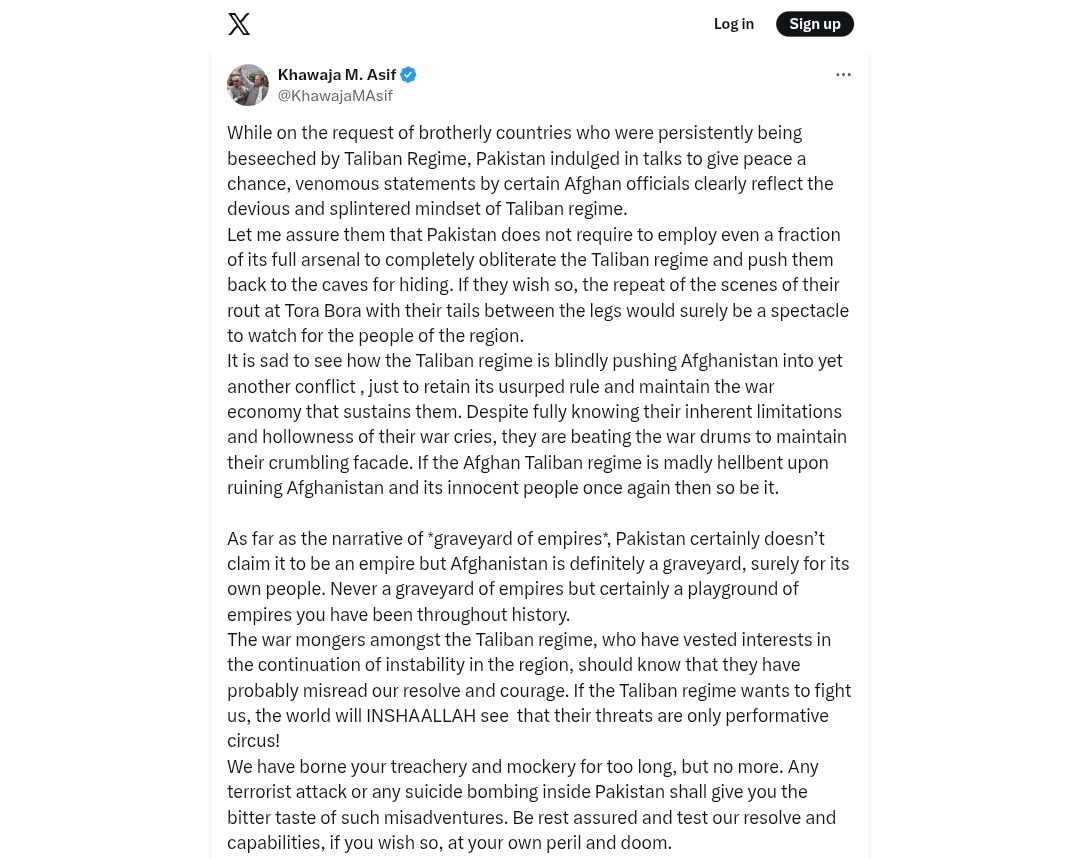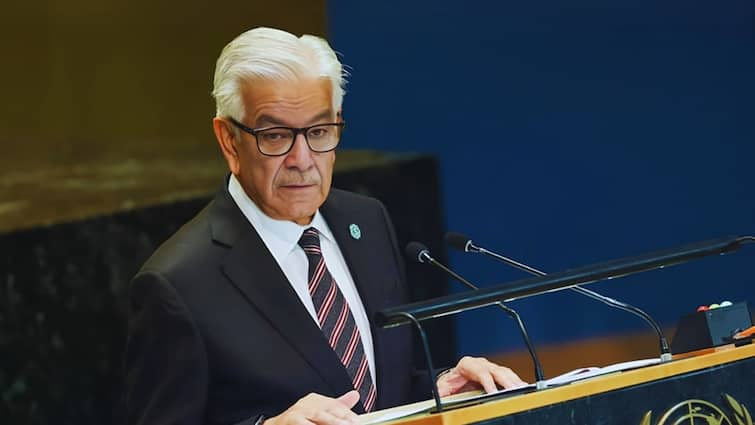After peace talks between Pakistan and Afghanistan held in Türkiye ended without an agreement, Pakistan’s Defence Minister Khawaja Asif issued a strongly worded threat to Afghanistan, calling it a “graveyard” and warning that Pakistan could force the Afghan Taliban back into the caves of Tora Bora.
Khawaja Asif wrote on X that Pakistan had entered the peace talks at the request of “brotherly countries” but alleged that several Afghan officials had “repeatedly made venomous statements” against Islamabad.
He warned that Pakistan did not need to deploy its full arsenal to uproot the Afghan Taliban, writing, “Pakistan does not require to employ even a fraction of its full arsenal to completely obliterate the Taliban regime and push them back to the caves for hiding. If they wish so, the repeat of the scenes of their rout at Tora Bora with their tails between the legs would surely be a spectacle to watch for the people of the region.”

Asif further claimed that while Afghanistan was historically called “a graveyard for empires,” it had become “a graveyard for its own people” and “a playground for empires.” He added that if the Taliban’s name were linked to any terrorist attack or suicide bombing inside Pakistan, “the Afghan Taliban will face severe consequences.”
Afghan Official Links Pakistan’s Strike To FM Muttaqi’s Visit To India
Yesterday, Qari Saeed Khoshni, an adviser to the Afghan Taliban’s Ministry of Culture and a senior member of the Haqqani Network, told retired Pakistani Major Adil Raja on his platform Soldier Speaks that Pakistan had attacked Afghanistan because, at the time, Afghan Foreign Minister Amir Khan Muttaqi was in India.
Khoshni claimed that Pakistan’s military and successive governments over the past 40 years had opposed Kabul establishing ties with New Delhi.
ISI Officer Blamed For Talks Breakdown, Linked To Pahalgam Attack
Khoshni also blamed Major General Shahab Aslam, head of ISI’s Special Operations, for the failure of talks in Istanbul.

According to Afghan officials, ISI’s DG (Special Ops) Shahab Aslam, who led Pakistan’s delegation in the talks, adopted a “very threatening tone” during negotiations and pressured Afghan representatives to accept Pakistani demands, including relocating Tehreek-e-Taliban Pakistan (TTP) militants from Khyber Pakhtunkhwa into Afghan territory and permitting Pakistani forces to carry out operations inside Afghanistan to target top TTP militants.
It is important to note that Major General Shahab Aslam’s name had recently surfaced in connection with the Pahalgam attack, where he was accused of planning the blueprint for the terror strike in coordination with Lashkar-e-Taiba.


